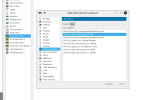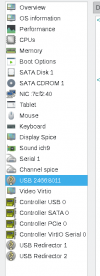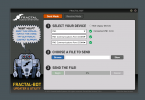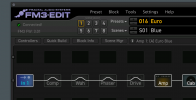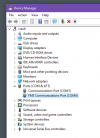Did you try connecting through Wine yourself? I'm still a bit unsure of what works and what doesn't. Managing firmware, banks and presets shouldn't be an issue from linux/wine (I hope?) but connectivity over the USB driver seems more problematic. If the audio part of the driver really is class compliant it could merely be a case of adding the HW details (id's and stuff to a generic linux driver). If control through fm3-edit also requires that specific USB driver then we do need a native linux version (or detailed specs, maybe sources for the windows counterpart). Still, there's a user (
@AlGrenadine) who has managed to make 3rd party control software for fm3 and I suspect that is through MIDI but could be wrong.


